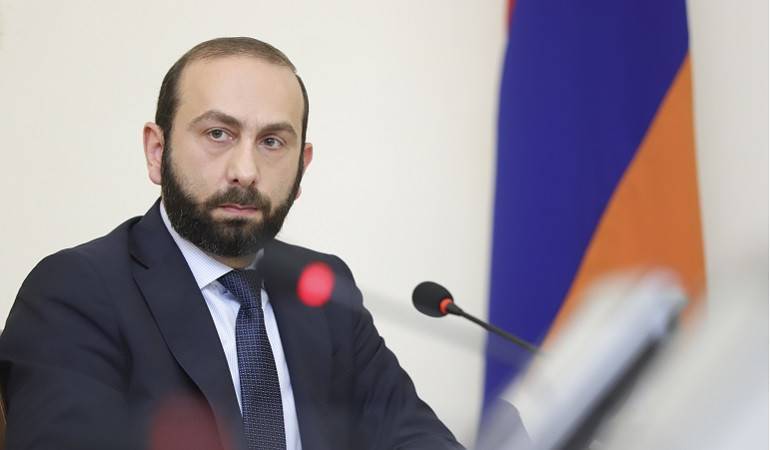Answers of the Foreign Minister of Armenia to the questions of “Armenpress” news agency
17 June, 2022Question: Yesterday in his speech the President of Azerbaijan Ilham Aliyev stated that Armenia is not sincere in the peace process. How would you comment on that?
Answer: The Government of Armenia has repeatedly demonstrated its readiness to make efforts toward the establishment of long-term stability and peace in the South Caucasus. At the same time, it is obvious that these efforts can not be one-sided, and Azerbaijan must also undertake active and sincere steps in this direction. The establishment of peace cannot result from the efforts of one side, and peace negotiations cannot be based on the proposals of one side only.
It is also obvious that for the success of these efforts, it is necessary to address and find a solution acceptable to all sides to the whole set of existing issues that have caused the conflict. In this context, the statements made by official Baku about the Nagorno-Karabakh conflict being settled are at least not obscure or, moreover, question the sincerity of the intention of Azerbaijan’s authorities to achieve peace. Whatever statements are made, the Nagorno-Karabakh issue continues to exist until adequate guarantees for the issues of the security of the Armenians of Artsakh and protection of all their rights, and accordingly, the deriving status of Nagorno-Karabakh is not addressed. In the modern world, the situation resulting from the use of force cannot be considered a solution to a problem.
The assertion that as a result of the use of force there is no Nagorno-Karabakh at all, does not demonstrate the constructiveness of Azerbaijan. Needless to say that this, indeed, does not correspond to the factual reality, the most important component of which is the existence of Armenians in Artsakh as well as the presence of the Russian peacekeeping contingent for ensuring their security, or the November 9 Trilateral Statement, which halted the war and clearly defines the existence of Nagorno-Karabakh.
The same can be said about the statements of the Azerbaijani authorities on the non-existence of the OSCE Minsk Group Co-Chairmanship. First of all, no one has and without the relevant decision of the international organization defining it, cannot suspend the international mandate of the Co-Chairmanship, i.e. to contribute to the political settlement of the Nagorno-Karabakh conflict. In that case, it is incomprehensible when the sides really want to negotiate sincerely to find mutually acceptable solutions and achieve lasting and comprehensible peace, then those talks should not be conducted within the format of the OSCE Minsk Group Co-Chairmanship, possessing clear support of the international community, and the non-use of its experience and potential is simply illogical and unreasonable.
Question: Ilham Aliyev also claims that the Armenian side is delaying the process of regional unblocking. What can you say about this?
Answer: We have always stated our interest in opening all the transport and economic infrastructures in the region. This is demonstrated by both the Trilateral Statements adopted by the Russian mediation on January 11 and November 26, 2021, as well as the agreements reached in Brussels.
I would like to emphasize that Armenia has always been involved in the discussions in good faith, and the process would have been much smoother and faster if Azerbaijan would not have come up with statements on the extraterritorial corridor, which do not correspond to the Trilateral Statement of November 9, 2020, as well as the commitments undertaken within the above-mentioned Statements.
As for Azerbaijan's efforts to draw parallels between the Lachin corridor and the unblocking of regional transport infrastructure, they obviously can not have the same status, given at least the provisions of the Trilateral Statement signed on November 9, 2020, which clearly defines the status of the Lachin corridor.
Moreover, Nagorno-Karabakh and the Nakhichevan Autonomous Republic have different statuses, different neighborhoods, and different security environments. Accordingly, their relations with Armenia and Azerbaijan cannot be identical.
I would like to emphasize again that the November 9 Statement envisages unblocking of all infrastructures in the region, while Azerbaijan is delaying in undertaking steps in this direction. We are ready for regional unblocking within the framework of the agreements on the preservation of the sovereignty and jurisdiction of the countries over roads, and the recent talks between the Deputy Prime Ministers of the two countries in Moscow followed this logic.


